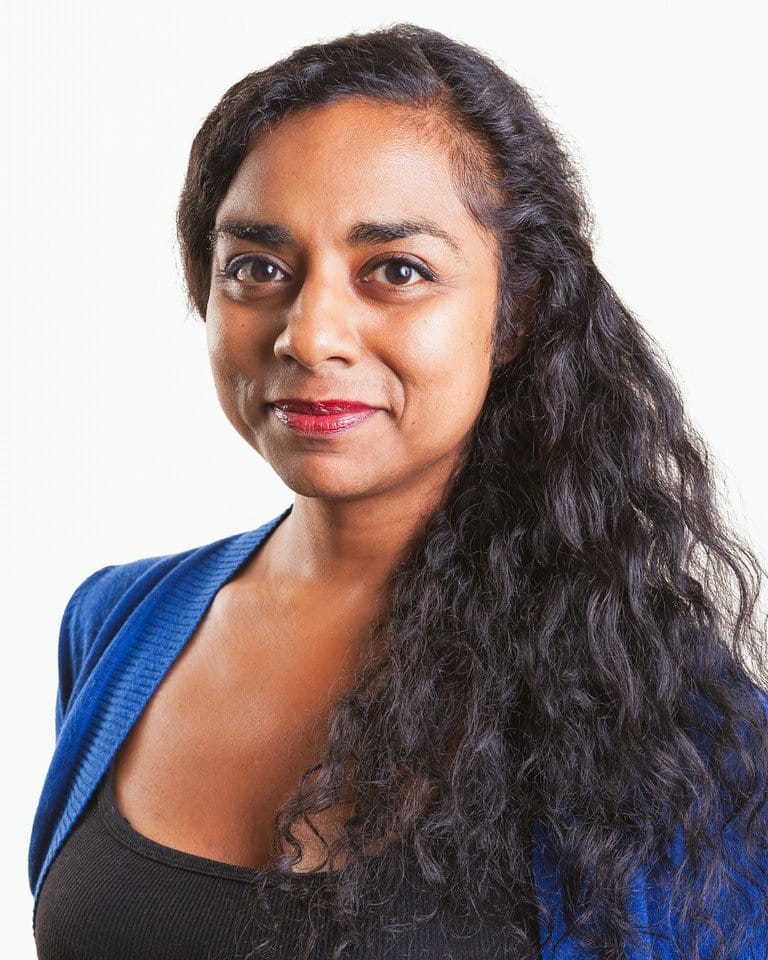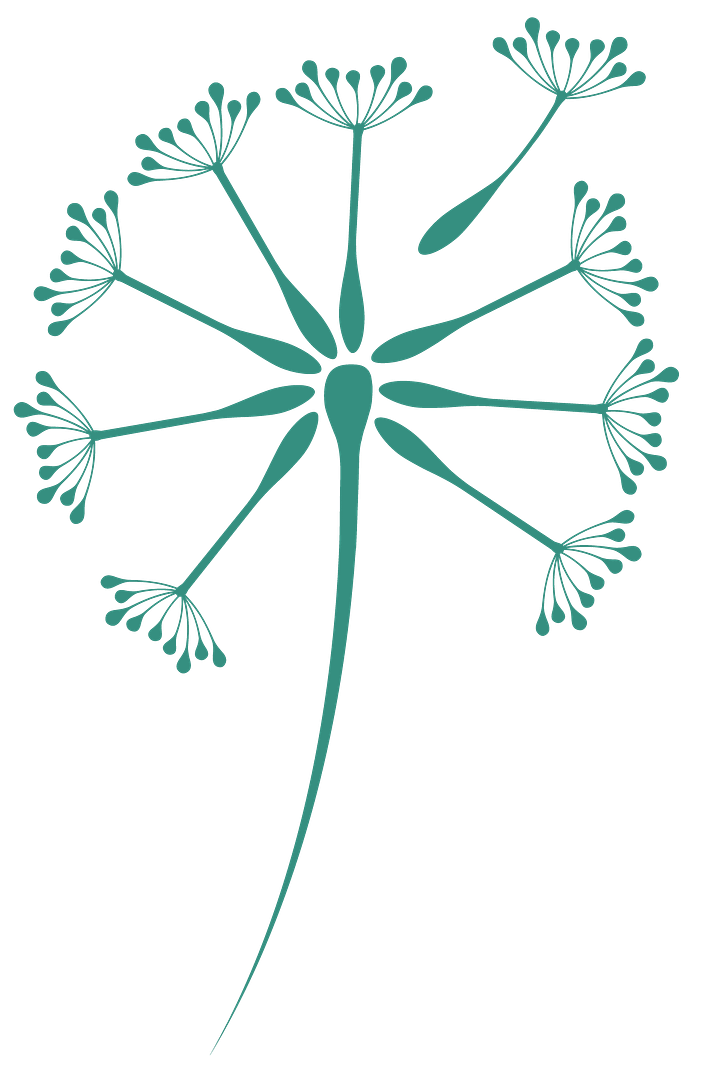About Anemochory

Anna-Liza Badaloo (she/her) is an organizational consultant, un-learner, and inclusive storyteller working at the intersection of health, environment, and social justice. Her lived experience as a queer, Indo-Caribbean, neurodiverse woman brings a valuable intersectional perspective to her work.
Viewing organizational justice and belonging through the lens of empathy, her decolonized, intersectional approach helps organizations identify how systemic discriminatory structures are embedded into their ways of working, and co-designs strategies to raise awareness and dismantle barriers. Committed to amplifying diverse voices, her work uncovers how colonial, capitalist, heteronormative, and ableist systems harm equity-deserving communities.
Currently, she is an Associate with the Sustainability Network, building environmental non-profit capacity via the Vision2030 Project. She hosts the Institute for Natural Medicine’s podcast, The ND Will See You Now, and writes about integrative medicine and health equity. Anna-Liza is regular contributor to magazines including QBiz (serving Canada’s queer business community), She is Wise (Ontario Native Women’s Association), and the Aboriginal Business Report (Canadian Council for Aboriginal Business).
Anna-Liza also gives back to her community by volunteering at the following organizations:
We envision a world in which empathy and kindness are leveraged to create inclusive workplace cultures where no one is left behind.

Our Mission
We help organizations uncover and confront colonial systems to foster inclusive workplaces where everyone feels a sense of belonging. Working at the intersection of health, environment, and social justice, we amplify the perspectives of equity-deserving communities and explore how to dismantle colonial ways of working.

Why Anemochory?
anemo- (“wind”) + -chory (“seed dispersal”)
Anemochory is the dispersal of plant seeds or spores by the wind. Our logo features dandelion seeds in motion, representing their resilience, ability to weather uncertainty, and willingness to break new ground wherever the wind takes them.
Our Guiding Values

Empathy
Seeing things from a different perspective is the foundation of co-creating meaningful organizational change.

Psychological Safety
True organizational change cannot occur unless all stakeholders feel safe to be their true selves.

Intersectional Lens
Our intersecting identities inform how we experience privilege and oppression. We use empathy to explore intersectional impacts.

Nothing About Us Without Us
We directly engage impacted communities in co-creating inclusive solutions.

Anti-Urgency
Countering urgency in white supremacy culture with a reflective approach that builds relationships at the speed of trust.
My Journey
The 1980s AIDS epidemic. Bhopal chemical plant explosion (1984). Discovery of the ozone layer hole (1985). Chernobyl nuclear meltdown (1986). Exxon Valdez oil spill (1989). The murder of 14 women at the École Polytechnique de Montréal (1989). Oka crisis (1990).
These incidents made a big impression on my childhood self, inspiring me to shine a light on injustice and work to change hearts and minds from a young age.
My parents moved to Canada from Trinidad and Tobago in the 1970s. Nearly all the major colonizers had their turn in Trinidad, which is why most of us Trinis have a diverse racial, cultural, and spiritual background. My heritage includes Indian, Black, and Spanish. With my mother’s side being Catholic and my father’s side being Hindu, I grew up integrating both traditions.
Thanks to my mother’s job at a major airline, I had the privilege of traveling extensively in my childhood and experiencing how other cultures lived. By the time I finished high school, I had learned that cultural beliefs and norms are ultimately what shape individual actions (or inactions). I spent two years studying Anthropology with a minor in Environmental Studies before deciding to take a break from academics.
For the next decade, I worked in the corporate sector, at vintage clothing shops, and housing coops. I studied Western Herbal Medicine and volunteered as a youth academic tutor and environmental arts facilitator. That’s when I decided that I needed to revisit my education. I went back to school and completed my degree in Environmental Policy and Resource Management at York University.
After spending four years learning how the government can manipulate policy and community consultations to push through harmful environmental legislation, I decided to work in the environmental non-profit sector. After spending years with organizations like LEAF (Local Enhancement and Appreciation of Forests) and the Toronto Botanical Garden in environmental education, advocacy, and community development, I moved to the health non-profit sector.
I spent seven years at the Ontario Association for Naturopathic Doctors (OAND) doing clinical education, and as Editor of their Pulse magazine. I engaged in Justice, Equity, Diversity, and Inclusion (JEDI) initiatives, campaigns, and education programs to increase culturally competent care for patients while addressing racism within the sector, including supporting the formation of NEST (Naturopathic Doctors for Environmental and Social Trust) and NDDR (Naturopathic Doctors Dismantling Racism).
I engaged in both internal and external Justice, Equity, Diversity, Inclusion, and Belonging (JEDIB) initiatives, campaigns, and education programs to increase culturally competent care for patients while addressing racism and discrimination within the naturopathic community.
And then the pandemic hit. As I listened to news coverage about the death of George Floyd (and others), rising health equity and access issues, higher infection rates in equity-deserving communities, and the second pandemic of loneliness, I realized that the world was finally ready for my message: health, environment, and social justice issues are merely threads of the same fabric. Unravel one, and it’s only a matter of time before the whole fabric starts to fray.
I obtained a Certificate in Strategic Copywriting from the University of Toronto and founded my first business (Daylighting Copywriting) in June 2020. Now, I’m living my best life as the Founder of Anemochory Consulting, dividing my time between organizational consulting that helps uncover how colonization shows up in ways of being, doing, and working, and communications that amplify the voices of equity-deserving communities.
It’s time to co-create a world that centres empathy and intersectional justice so that we can all be our best selves. Who’s with me?
From Our Clients
“Anna-Liza Badaloo has made outstanding contributions to the Environmental Noxiousness, Racial Inequities and Community Health (ENRICH) Project as a strong advocate for environmental and social justice. Anna-Liza’s knowledge on the intersections of health, environment and social justice, her extensive experience working alongside communities to dismantle oppressive systems, and the unwavering kindness and positivity she extends to those around her make her an invaluable member of the ENRICH team.”
– Dr. Ingrid Waldron, Ph.D.
Founder and Executive Director of the Environmental Noxiousness, Racial Inequities and Community Health Project
(The ENRICH Project)

I live, work, and play on stolen Indigenous lands, located in what is colonially called Toronto, Ontario, Canada. These lands are the traditional territories of the Mississaugas of the Credit, the Anishnabeg, the Chippewa, the Haudenosaunee, and the Wendat peoples. Toronto is covered by Treaty 13 (signed with the Mississaugas of the Credit), and the Williams Treaties (signed with multiple Mississaugas and Chippewa bands).
To stay connected with urban nature and seasonal changes, I moved to the Lower Don River area, where I enjoy watching the river and hiking the beautiful trails. The Don Valley was named after the River Don in Britain by Governor Simcoe (who named many places in Ontario). Waasayishkodenayosh (‘burning bright point’ among other translations) was documented as the Anishnaabemowin place name for the Lower Don River, likely referring to the practice of spearing salmon by torchlight.
